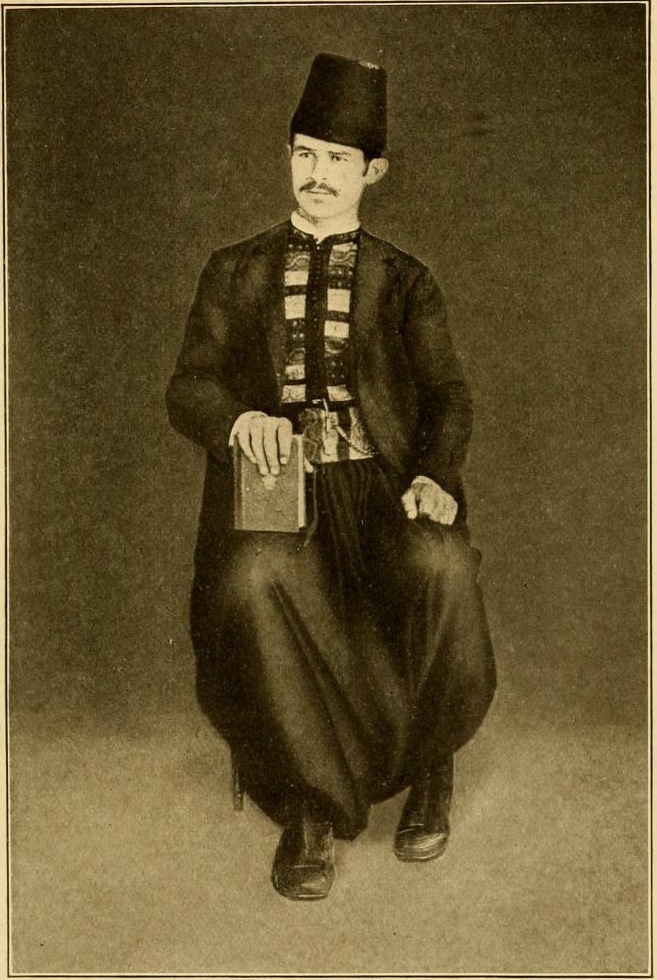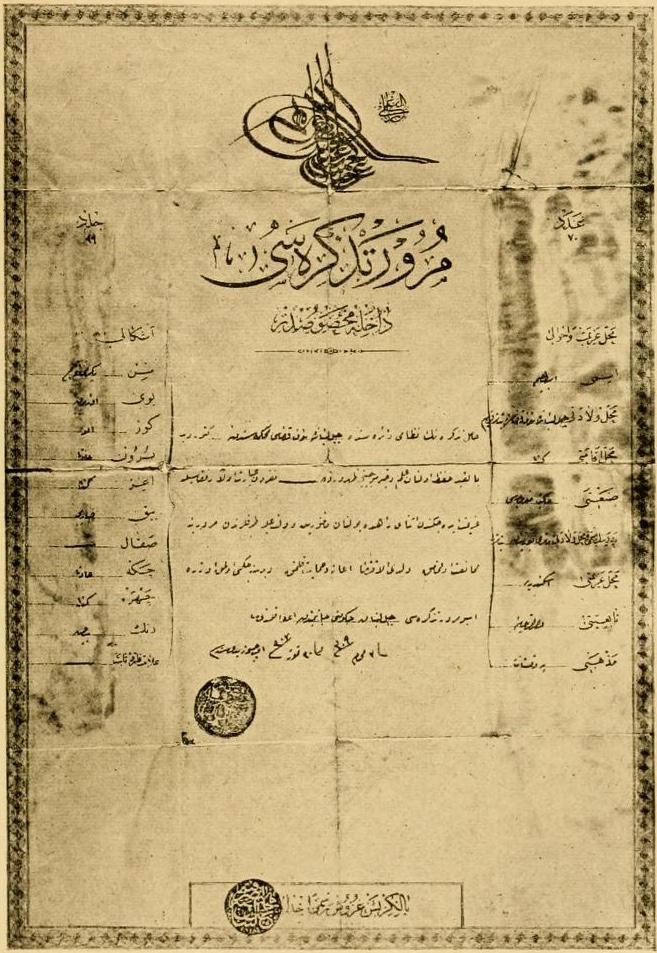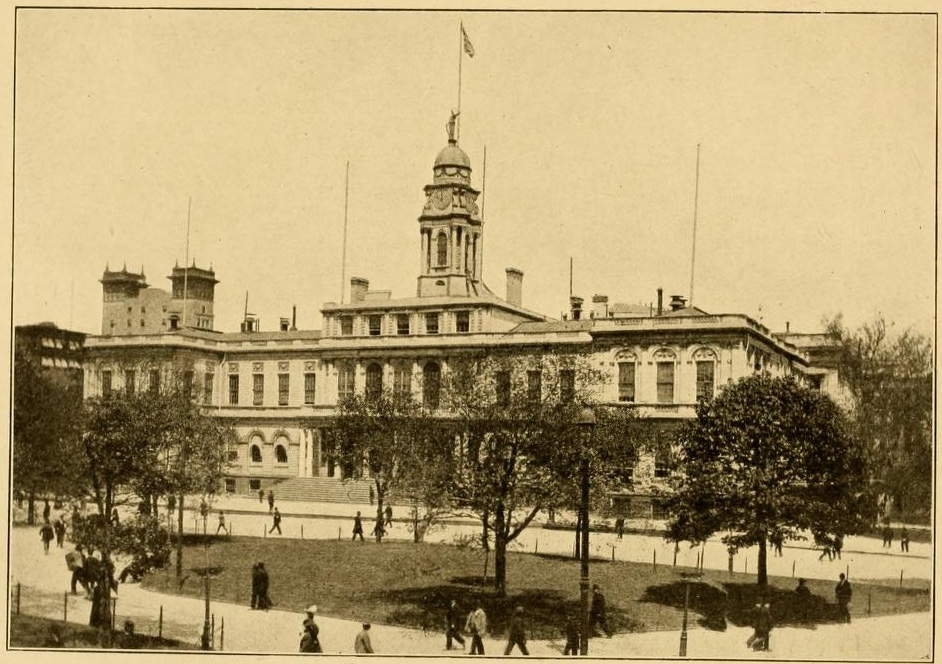Abraham Rihbany in New York's Syrian Colony

By: Arwa Almasaari / Arab America Contributing Writer
Abraham Rihbany arrived in New York on October 6, 1891, and quickly found refuge within the Syrian colony. Fellow Syrians promptly came to his aid, lending him the necessary funds to survive. Beyond financial support, the colony helped him secure shelter, employment, and a sense of community, guiding him through the challenges of adapting to a new land. Arab America contributing writer, Arwa Almasaari, recounts Rihbany’s experience in the Syrian colony, highlighting the remarkable solidarity of the community as depicted in his captivating autobiography, A Far Journey.
Aboard the Ship

Abraham Rihbany arrived in New York on October 6, 1891. After anchoring in the harbor too late to disembark, he bought food from Italian vendors who boarded the ship. There, he tasted his first “real meal” since leaving France—a spiced “meat composite” called “bologna.” Though he found the food “unspeakably toothsome,” he considered it his “first trophy of the New World.”
His excitement faded when he realized his precarious financial situation. Fellow passengers warned him that, as a single man without a job, he might face deportation unless he could prove he had at least twenty dollars, which he didn’t. His companions stepped in, lending him four pounds to meet the requirement. At Ellis Island, his nerves settled when the inspector, a fellow Syrian, waved him through after a lighthearted exchange about marriage, never even asking about the money. This inspector was none other than the famous Najib Arbeely—one of the co-founders of the first Arab American newspaper, Kawkab America.
Abraham’s Restaurant in the Syrian Colony
As he set foot in New York, Rihbany walked through Battery Park and up Washington Street with a small group of fellow travelers. Rihbany was introduced to Abraham, a fellow Syrian who owned a restaurant and lodging house.
After the long voyage with no food that appealed to him, Rihbany was “starving” as he entered Abraham’s restaurant. He immediately spotted a dish of maamoul and, without hesitation, grabbed one and devoured it instantly. Realizing that Rihbany had nothing more than half a franc, Abraham did not charge him.
Though Rihbany initially feared his poverty would make others look down on him, he soon encountered further kindness from the community. A Syrian man offered him five dollars the next day, an act of generosity that gave Rihbany a temporary financial cushion as he struggled to find work.
While staying in Abraham’s modest lodging house, Rihbany realized he couldn’t afford to remain there long. Understanding his dire circumstances, local Syrians directed him to Moses, a lodging house proprietor who charged a mere five cents per night. It was basic, they warned, but adequate for a man in need.
Moses’ Support for Immigrants
Moses, the proprietor, welcomed Rihbany warmly. He explained that he charged low rates to help struggling Syrian immigrants get on their feet. His hospitality was genuine, though his establishment was basic. Instead of beds, Moses offered Rihbany a simple platform on a landing in the stairwell of his store. The arrangement lacked privacy, but Moses pointed out that the space offered plenty of fresh air and assured him that only fellow countrymen would pass through. Moses admitted that noise from the peddlers downstairs might be an issue, but he noted that, as a Syrian, Rihbany was surely accustomed to such sounds.
After a night there, Rihbany decided he needed more comfortable accommodations, though he appreciated Moses’ kindness. When he informed Moses of his decision to move on, the man was understanding and even promised to help him find work at a Syrian-owned store. Moses, true to his word, became a valuable connection as Rihbany began to navigate life in the Syrian colony. Ten days later, Moses sought him out in Battery Park with good news. With a generous smile, Moses informed him of a merchant, Khawaja Maron, who needed a katib—a bookkeeper—and Moses thought Rihbany was the right man for the job.
Maron’s Support for the Community
At Maron’s store, Rihbany became a bookkeeper, gradually becoming part of the vibrant Syrian community around No. 5 Carlisle Street, which catered to peddlers. The store was a lively hub for Syrian immigrants, even hosting local celebrations like weddings, where the community gathered in joy and camaraderie. Rihbany’s relationships with prominent Syrians grew, and his connection with Najib Arbeely, a well-educated Syrian inspector at Ellis Island, inspired him to propose the formation of a “Syrian Scientific and Ethical Society.” Despite the society’s initial success, it ultimately failed to find a stable space, leaving Rihbany disappointed.

Still, the Syrian colony in New York continued to support Rihbany, offering him shelter and companionship for eighteen months. He found the community familiar enough to provide comfort but different enough to spark his curiosity about the broader American society surrounding him.
Arwa Almasaari is a scholar, writer, and editor with a Ph.D. in English, specializing in Arab American studies. She often writes about inspirational figures, children’s literature, and celebrating diversity. You can contact her at arwa_phd@outlook.com
Check out our blog here!








